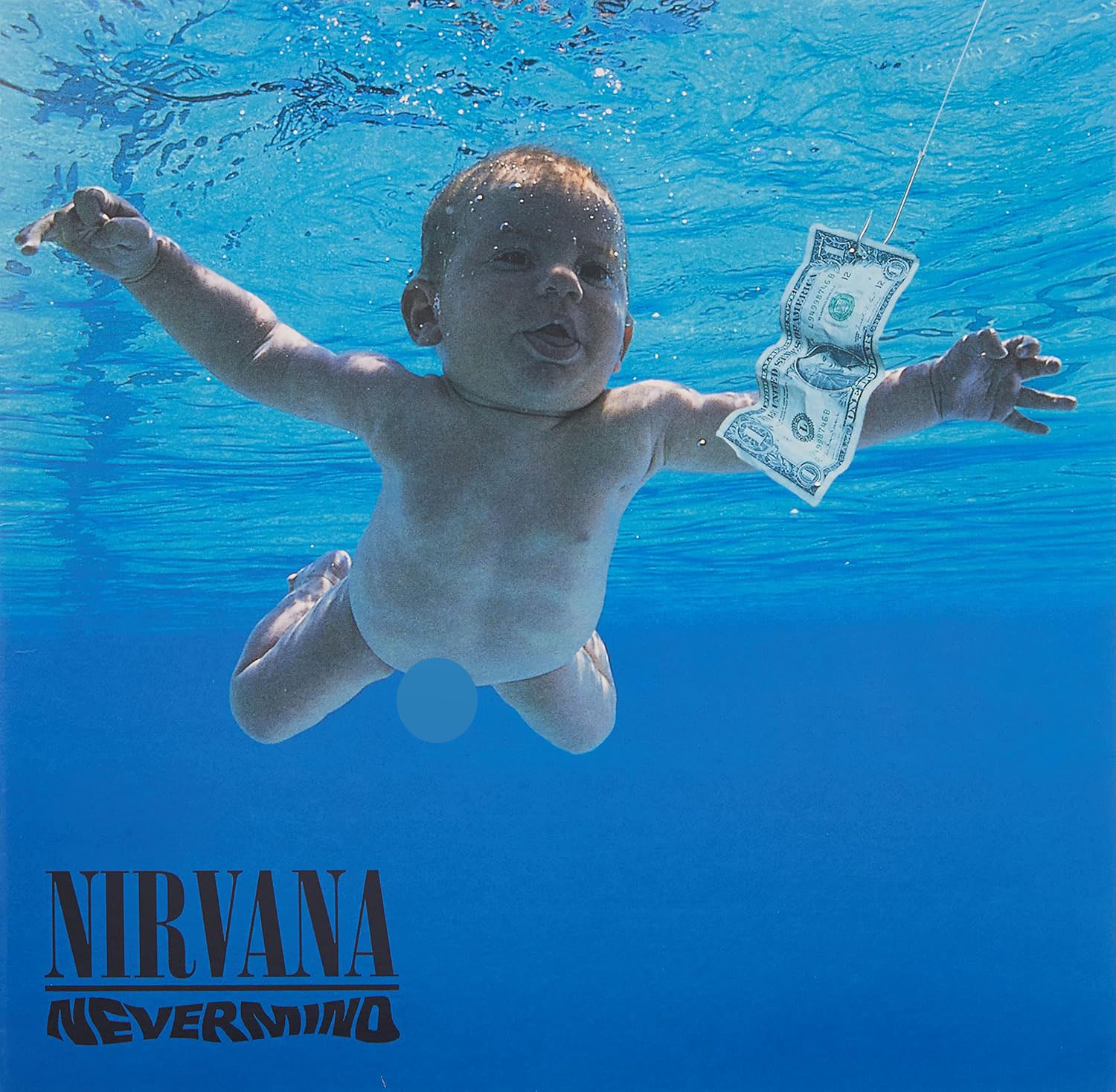
Nirvana – Nevermind
I was 18 when Nevermind came out, and if you weren’t there, you’ll never fully understand what it felt like. It was like a meteor hit music. One day, it was all hair metal, neon spandex, and drum machines, and the next, it was flannel, distortion, and an existential crisis you could actually dance to. Nirvana didn’t just release an album; they ripped a hole in the fabric of pop culture and let all the disaffected, pissed-off, and misunderstood kids climb through.
And let’s be clear: Nevermind wasn’t supposed to be this big. This was just three scrappy guys from Seattle making an album they thought might sell a few thousand copies, maybe let them quit their day jobs. But then “Smells Like Teen Spirit” happened, and suddenly, everything changed. That opening riff? It’s the sound of the entire ‘80s collapsing in on itself. The second it hit, you knew things weren’t going back to normal. Kurt Cobain’s voice was raw, desperate, and completely unhinged in a way that made you feel like he was singing your own confusion back at you. And that chorus—loud, quiet, louder—wasn’t just a musical trick, it was a tidal wave. It didn’t matter if you were a misfit skater kid or some suburban burnout, this was your anthem.
But Nevermind isn’t just “Smells Like Teen Spirit.” Every song is its own sucker punch. “In Bloom” mocks the very people who bought the album, which makes it even funnier that frat bros cranked it at keggers. “Come As You Are” is sludgy and hypnotic, a song that practically begs you to sink into the couch and let your brain melt. “Lithium” is a singalong for people teetering on the edge, and “Polly” is so stripped-down and haunting that you don’t even realize how horrifying the lyrics are until halfway through.
Then there’s “Drain You,” which might be Nirvana’s most underrated song, full of bizarre, cryptic lyrics about dependency that somehow feel more universal than anything else on the album. “Territorial Pissings” is pure chaos, an explosion of punk energy that makes you want to kick over a table, and by the time you hit “Something in the Way,” you feel like you’ve been through a full psychological breakdown.
And that’s the thing—Nevermind isn’t just music. It’s a mood, a whole generation’s nervous breakdown wrapped in fuzz pedals and Cobain’s gut-wrenching wails. It felt dangerous and vulnerable at the same time, like you weren’t just listening to songs, you were overhearing someone’s diary being set on fire. It turned grunge from a regional subculture into the defining sound of the decade and made rock feel dangerous again after years of corporate gloss.
The cultural impact? Unmatched. Before Nevermind, alternative music was exactly that—alternative. After Nevermind, it was mainstream. This album didn’t just kill hair metal; it burned it to the ground and salted the earth. Suddenly, everyone was wearing ripped jeans, every record label was scrambling to sign the next Nirvana, and every teenager with a cheap guitar was convinced they could start a band. And maybe they could—because Nevermind proved you didn’t need million-dollar production or virtuoso musicianship. You just needed something real, something that mattered.
And that’s why Nevermind is a top-five album of all time. Because it wasn’t just music—it was a revolution. It was the sound of an entire generation realizing they weren’t alone in their discontent. And for those of us who lived through it, it wasn’t just an album we listened to. It was an album that changed us.